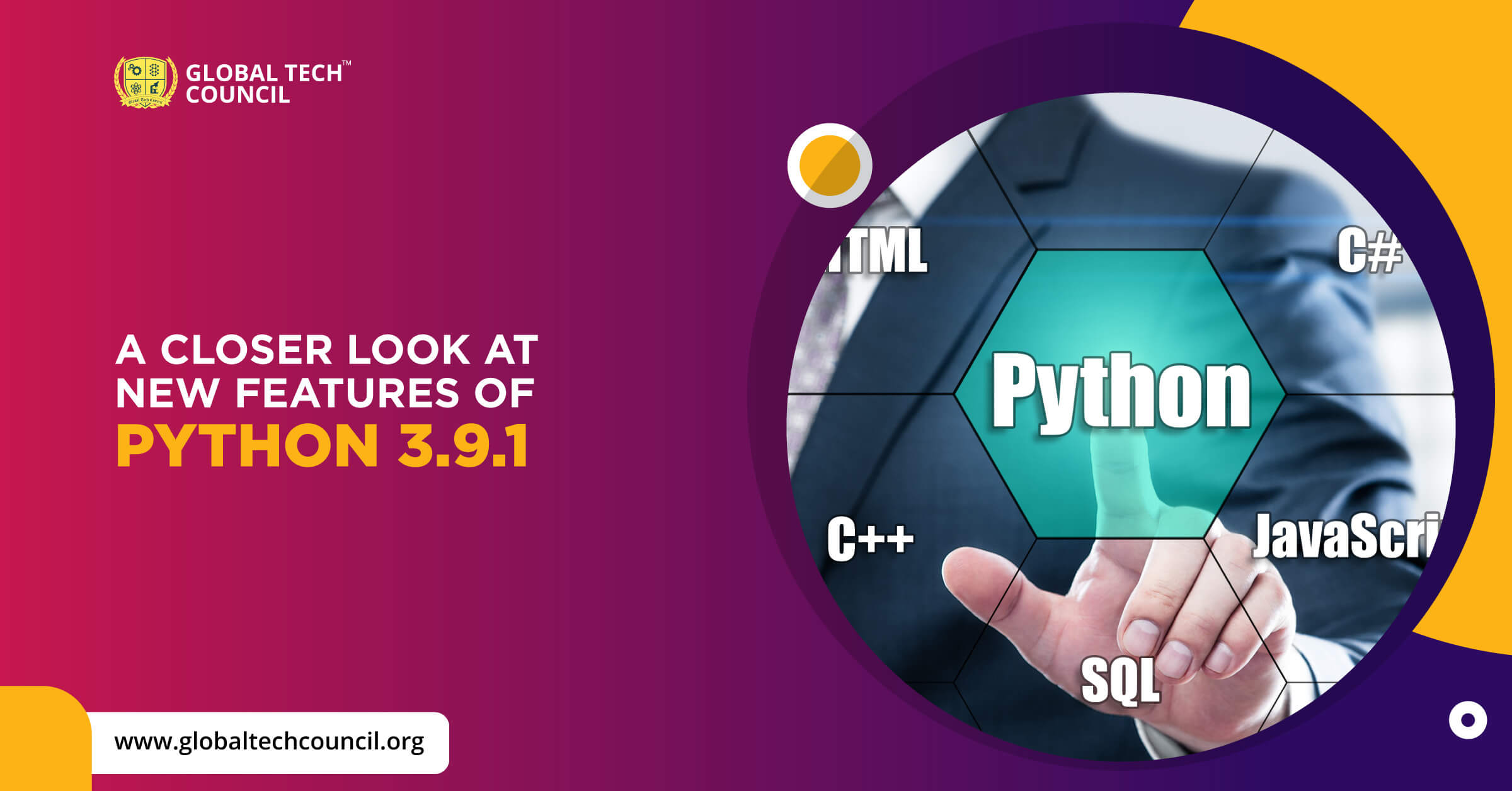
Are you excited to explore and use the new features of Python 3.9.1? This article explains the must-know features of Python 3.9.1
So let’s get started.
Table of Contents
- List of Python Versions
- Must-Know Python 3.9.1 Features
- Concluding Lines
List of Python Versions
At present, Python is the most favorite programming language of developers. This is because it is highly productive when compared to other languages such as C++, Java. Moreover, it has a simple programming syntax, code readability, and English-like commands that make this coding language a lot user-friendly and efficient.
Since its introduction in January 1994, Python has gone through a number of changes. Recently, it has released its latest version, 3.9.1 that includes several features and optimizations.
If you want to become a Python Expert, you can enroll in the python training course offered by Global Tech Council.
| Python Version | Released Date |
| Python 1.0 | January 1994 |
| Python 1.5 | December 1997 |
| Python 1.6 | September 2000 |
| Python 2.0 | October 2000 |
| Python 2.1 | April 2001 |
| Python 2.2 | December 2001 |
| Python 2.3 | July 2003 |
| Python 2.4 | November 2004 |
| Python 2.5 | September 2006 |
| Python 2.6 | October 2008 |
| Python 2.7 | July 2010 |
| Python 3.0 | December 2008 |
| Python 3.1 | June 2009 |
| Python 3.2 | February 2011 |
| Python 3.3 | September 2012 |
| Python 3.4 | March 2014 |
| Python 3.5 | September 2015 |
| Python 3.6 | December 2016 |
| Python 3.7 | June 2018 |
| Python 3.8 | October 2019 |
| Python 3.9.0 | May 2020 |
| Python 3.9.1 | December 2020 |
Must-Know Python 3.9.1 Features
Python 3.9 was considered to be the first version of Python to default to the 64-bit installer on Windows. The installer now actively disallows installation on Windows 7.
In December 2020, Python programming language released 3.9.1, and it is the first time that python supports macOS 11 Big Sur. Using Xcode 11 or later, one can build “Universal 2” binaries that run on Apple Silicon. Binaries can now be built on current versions of macOS to be deployed on older macOS versions (tested down to OS X 10.9) while making some newer OS functions conditionally available based on the OS version in use at runtime
Talking about the latest features and changes in Python 3.9, it includes:
- Module State Access from C Extension Methods
- Type Hinting Generics In Standard Collections
- Union Operators in dict
- Flexible function and variable annotations
- Support for the IANA Time Zone Database in the Standard Library
- Adds universal2, the universal build variant to support ARM64 and Intel 64.
- String methods to remove prefixes and suffixes ie new added is str.removeprefix(prefix) and str.removesuffix(suffix)
- Relaxing grammar restrictions on decorators
- Now the leak memory issue is resolved
Concluding Lines
Python has come a long way since its introduction, and it is still gaining popularity today. In fact, it is one of the favorite languages of most developers. This rise in popularity, combined with its versatility, makes this language a great choice for both beginners and experienced developers coming from diverse backgrounds.
If Python interests you, you can get started today with Global Tech Council and become a Certified Python Expert.